Hand Throwing in Antwerpen
(11/04/03)
Last updated 12/16/03
Possessing perhaps the most beautiful train station in the world, the
city of Antwerp (Antwerpen),
in the Flemish region of Flanders, was our first encounter with Belgian
soil (actually I keep a little bit of the stuff at home for our
tomatoes, just kidding of course). Daria fell in love with the train
station at first sight. I believe her exact words were: "Can you
believe they did all this just for a train station???". With an inside
adorned with a high-arching clear glass ceiling, marble columns
and guilding befitting a museum, and a gothic exterior to rival a
cathedral, its obvious that the architect of the train station at
Antwerp went well above the call of duty. Marvelling at the wonders
offered by the train station alone, we strolled out into the second
largest city in Belgium to see what other treasures Antwerp had in
store for us...
Our tour of Antwerp began at the Grote Markt, both the literal and
figurative center of the city. This main square (shown in the pictures
below) is noteworthy both for the many 19th century guildhouses lining
square and for the central Brabo Fountain. The fountain, built in 1887,
derives its name from the tale of the
Roman warrior Silvius Brabo. He supposedly killed a river-dwelling
giant who had demanded a toll from passing shipmasters, or one of their
hands if they refused. In the process of slaying the giant, Brabo
sliced off one of the giants hands and threw it in the Scheldt River.
The term hand werpen, or
"hand throwing", eventually became the Flemish name for the town -- Antwerpen.
The city, built along the banks of the Scheldt River, has a bustling
port which handles 121 million tons of goods each year and was, at one
point in the 20th century, the third largest port in the world.
We avoided the industrialized port area, with its slew of cranes and
warehouses, and instead took an evening stroll along the River
promenade to a fairy-tale castle with a sculpture of a giant out
front and a picturesque view of the river at the back.
Another facinating landmark in Antwerp is Onze Lieve Vrouwkathedraal
(Cathedral of Our Lady), with its 120m tall spire, which happens to be
Belgium's largest cathedral. The cathedral was built between the 14th
and 16th centuries (actual construction took 170 years) on the site of
a small 10th century chapel which honored the Virgin. The cathedral is
notable for its possession of 4 masterpieces by the famous Flemish
(actually from Antwerp) Baroque painter Peter Paul Rubens, who
specifically made 3 of the paintings for the church.
The sight-seeing in Antwerp, combined with a stay at a beautiful
bed-and-breakfast in town, provided a very nice introduction to Belgium.
Pictures
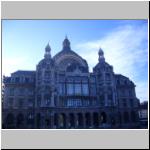
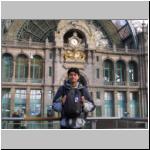
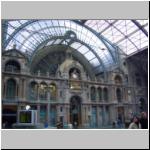 They have a really beautiful train station in Antwerp.
They have a really beautiful train station in Antwerp.
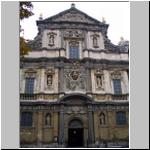
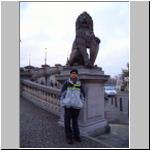
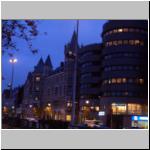
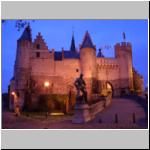 Lovely riverfront promenade with a castle
Lovely riverfront promenade with a castle
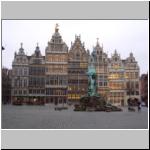
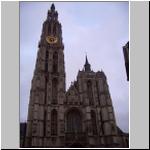
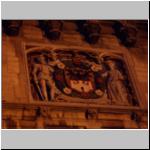
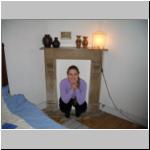 And other city views...
And other city views...


 They have a really beautiful train station in Antwerp.
They have a really beautiful train station in Antwerp.


 Lovely riverfront promenade with a castle
Lovely riverfront promenade with a castle


 And other city views...
And other city views...